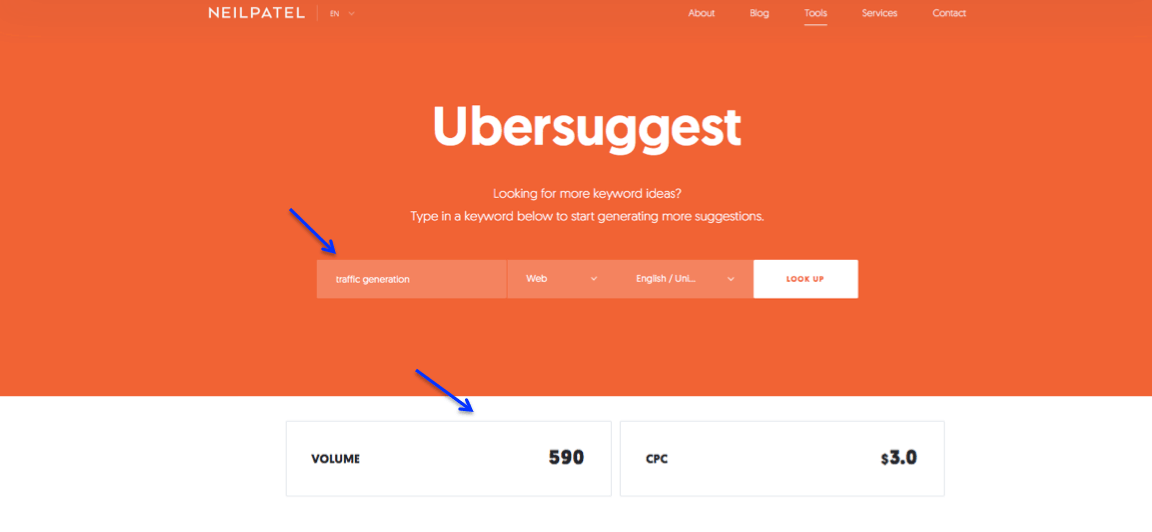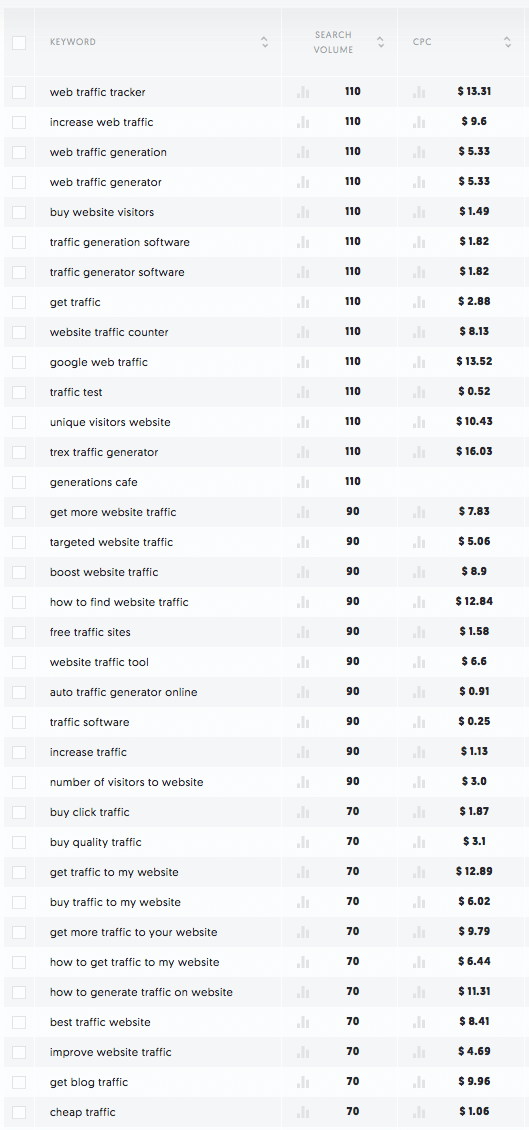How To Do Keyword Research for SEO in 2020- 3 Simple Tips

Keyword research can be an overwhelming and confusing task for many bloggers.
I know when I first started out, I had no idea what types of keywords to target and made many mistakes in the process.
Thankfully after years of SEO experience working with a variety of clients and after much trial and error on my own blog, it has become much clearer to me the types of terms to target.
In this blog post we will go over 3 simple steps on how to properly do keyword research for SEO which will ultimately help drive more traffic to your website.
How To Do Keyword Research for SEO- 3 Simple Tips
Step #1– Start With An Idea:
Have an idea of the type of term(s) you’d like to target. For example, maybe you’re interested in targeting the keyword “traffic generation” for a blog post. Just knowing this gives you some direction and is a good starting point that we can use in step #2. If you need help coming up with ideas, analyze your competitors and look into what’s trending in your niche.
Step #2– Plug Your Keyword Into A Keyword Research Tool:
Plug the term “traffic generation” into a keyword research tool to generate additional ideas. The keyword research tool I recommend is Ubersuggest by Neil Patel and it’s also free to use. Here are a few other good keyword research tools below as well:
- Ubersuggest (free)
- Google Keyword Planner (free)
- MOZ Keyword Explorer (paid)
- Keywordtool.io/google (paid)
Using Ubersuggest have “Web” selected and “English/ United States” and click “Look Up”. This will now populate a list for you to analyze.

As you can see, “traffic generation” has 590 monthly searches which is pretty good, however (and a big however), that specific keyword is going to be incredibly competitive and difficult to rank highly for since it’s so broad.
Which brings me to my next point…
Step #3– Go After Long-Tail Type Keyword Phrases
The problem I see with many new bloggers when it comes to keyword research is that they try and target the most competitive terms (mainly because of monthly search volume) and wonder why they are buried in the search results and are receiving ZERO traffic.
These keywords are extremely hard to rank for and especially for a brand new website with no authority yet. A better approach to start gaining some traction would be to focus on long-tail keywords phrases. This means go after terms that have anywhere from 3-5 words in them. For example, Ubersuggest provided me with a whole bunch of keyword ideas and variations…See screenshot below (this is just a snapshot of the entire list):

After analyzing the list a bit, I found some really great long-tail terms to go after. Instead of targeting “traffic generation” (which we already established is too competitive for a newer website), see below for a handful of keyword phrases that may be a better alternative:
- “how to increase website traffic” – 480 searches per month
- “how to get traffic to your blog” – 320 searches per month
- “how to increase website traffic for free” – 170 searches per month
- “get more traffic to your website” – 70 searches per month
- “how to get traffic to my website” – 70 searches per month
- “how to get visitors to your website” – 50 searches per month
- “how to generate traffic to my website” – 40 searches per month
Now some of you may be saying “40 searches per month, that’s peanuts”!
Well, I won’t argue with you there, but if it’s highly targeted traffic from Google it’s still very valuable.
I personally rank on page #1 of Google for keywords with 100 monthly searches or lower that I do very well with…and especially since they are easier to rank for.
Now let’s say that over the next 12 months you rank highly for 20-30 long-tail keyword phrases at an average of 70 visitors per month, that could easily generate you over 1,000 organic search visitors each and every month.
This could continue to build overtime, with the right SEO strategy, and snowball to thousands of unique visitors per month.
Please note: I’m all for going after some competitive terms with high monthly search volume (as I do myself), but not for bloggers who are just starting out.
Before attacking really competitive keyword phrases, you really need to get your website authority up by building quality backlinks.
Conclusion:
The only way to get better with keyword research and ranking your website in Google is through practice, trial and error. The more you do this, the more confident you will be in selecting the right keyword phrases. Remember to focus on long-tail terms at first for the best chance of ranking in the search results. Once your website gains more authority, you can then start to target some broader terms. Watch the YouTube version of this blog post here.
